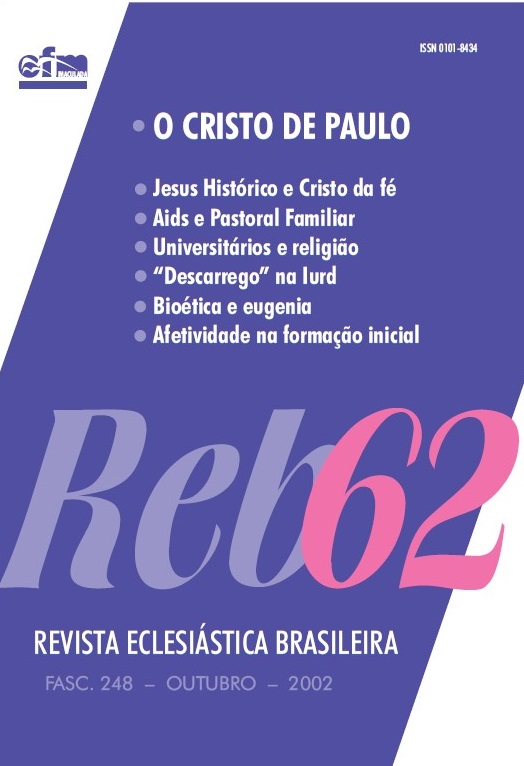Bioética: “prejuízo por ter nascido” e clonagem terapêutica
DOI:
https://doi.org/10.29386/reb.v62i248.1937Parole chiave:
Bioética, Clonagem.Abstract
A Bioética progride no aprofundamento de dilemas já abertos à discussão, sem que haja sempre uma solução que convença todos os envolvidos. Progride também pela aparição de novos desafios que questionam a problemática ética tradicional. Dois deles estão sendo examinados neste artigo. Uma decisão de alta jurisdição civil admitiu a indenização de um portador de defeito pelo seu alegado incômodo de existir: os médicos não tinham avisado sua mãe do risco de ela gerar um excepcional, fazendo-a perder a faculdade que lhe teria concedido a lei de abortar em prazo legal. A rejeição popular desta sentença, repetida em outros casos, provocou que a legislação franca acrescentasse o princípio de que ninguém tem motivação suficiente para obter indenização apenas pelo fato de ter nascido. No pólo oposto da vida, a discussão se radicaliza em torno da clonagem, ainda não da clonagem reprodutiva humana, rejeitada, mas da clonagem terapêutica, não isenta de encontrar dificuldades técnicas e éticas.
Abstract: Bioethics has become more thorough when dealing with dilemmas already open to discussion, although it does not always succeed in finding solutions that can convince all those involved. Another source of its development is the appearance of new challenges that question the traditional ethical problems. Two of those challenges are being looked at in this article. A high civil jurisdictional decision admitted the payment of compensation to a person suffering from a physical disability for the sheer discomfort he had in living: the doctors had not warned his mother of the risks she had of begetting a disabled person, so by the time she realized this, her pregnancy was too advanced for her to have a legal abortion. The popular rejection of this sentence, repeated in other cases, led the legislation to accept the principle that nobody has sufficient motivation to receive compensation for the sheer fact of having been born. In the opposite pole of life, the discussion about cloning becomes radical – not yet about human reproductive cloning, which is rejected, but about therapeutic cloning, which is not exempt from technical and ethical difficulties.Downloads
Riferimenti bibliografici
DREYFUS-NETTER, F., Préjudice de l’enfant victime d’un handicap..., em: Médecine et droit, n. 46, 2002.
CHARBAS, F., cf. La Semaine juridique.
La Semaine juridique, Paris, 30 de janeiro de 2002, p. 243-254.
L’Express de 03 de janeiro e de 10 de janeiro de 2002.
Le Nouvel Observateur de 16 de janeiro e 23 de janeiro de 2002.
Le Monde de 31 de janeiro de 2002.
LOISEAU, G., Chronique d’une vie non désirée: le droit de ne pas naître de l’enfant handicapé, em: Droit et patrimoine, n. 98, novembro de 2001.
Downloads
Pubblicato
Come citare
Fascicolo
Sezione
Licenza
Copyright (c) 2020 Revista Eclesiástica Brasileira

TQuesto lavoro è fornito con la licenza Creative Commons Attribuzione 4.0 Internazionale.
Os autores cedem os direitos autorais; como gratificação, a REB oferece dois exemplares ao Autor de um artigo.
A REB adere à licença não comercial (Creative Commons). Portanto, é permitida cópia, distribuição e exibição dos textos, respeitados os direitos autorais e citada a fonte de sua proveniência.


